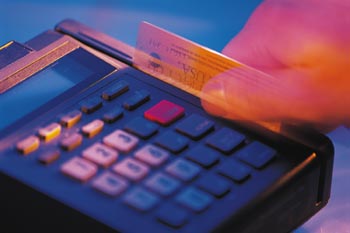Protecting Your Identity

Every 79 seconds in the United States, someone’s identity is stolen. Using a new stolen identity, a thief can open accounts and go on shopping and crime sprees, all courtesy of an unknowing victim whose credit and name may be forever tarnished.While it may have been an unthinkable movie plot 10 years ago, identity theft has not only become a reality, but also is the most popular form of consumer fraud. According to the Federal Trade Commission (FTC), more than 40,000 complaints of identity theft were reported in 2000. In 2001, the number of complaints more than doubled to 86,168. On average, the FTC says each case causes the victim to spend more than 175 hours and at least $1,000 in out-of-pocket expenses to clear their name.Getting your information is not as hard as you may think. Other than the obvious method of stealing a purse or wallet, thieves also can go through your mail or trash to take pre-approved credit card offers, credit card receipts or bank statements. Some thieves will even call your home posing as phone solicitors and gain personal information such as your name, date of birth and social security numberThe average length of time from when the identity theft actually occurs and when it is noticed is 14 months. During this time, thieves can open credit accounts, buy homes and cars, gain employment and government benefits and even engage in criminal activities, all in your name.The best protection from identity theft is to be cautious and prepared. Some of the signs of identity theft include unauthorized charges on credit card statements, failure to receive bills, and phone calls from creditors trying to collect debts that are not yours.To prevent identity theft, the U.S. Department of Justice and the FTC suggest the following:• Never put your Social Security or driver’s license number on checks.
• Check your bank and credit statements regularly to make sure nothing is out of the ordinary.• Be stingy with your personal information.• Get periodic copies of your credit report and look for unusual transactions or accounts. • Shred credit applications, credit card receipts, bills, unused checks and bank statements.• Don’t carry personal identification numbers, bank account numbers, passports, birth certificates, Social Security cards and infrequently used credit cards in your purse or wallet.If you believe yourself to be a victim of identity theft, contact the fraud departments of the three major credit bureaus and ask that a “fraud alert” be placed in your file.Trans Union: 1-800-680-7289
Experian: 1-888-397-3742
Equifax: 1-800-525-6285You also should file a police report with local police, and keep a copy of the report for your records. Some financial institutions may require you to show a copy of the report to verify the crime. Finally, contact the security departments of all creditors and close any accounts that have been fraudulently accessed. Confirm your contact in writing and ask that the old accounts be processed as “account closed at consumer’s request” instead of having a “card lost or stolen” reference, which can be interpreted as blaming you for the loss. Although all these steps and recommendations may seem time consuming, they are well worth the effort. Victims of identity theft will tell you that taking time to protect yourself is far better than the time it takes to remove the stains left on your record by thieves. Your name and good credit history are among your most valuable assets, and it’s up to you to protect them.Tiffany Trueblood is a marketing communications specialist with Alfa Insurance Co.
